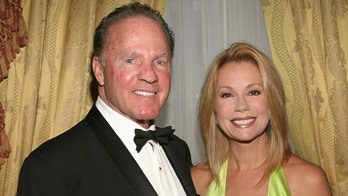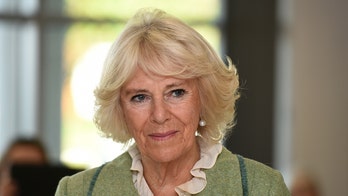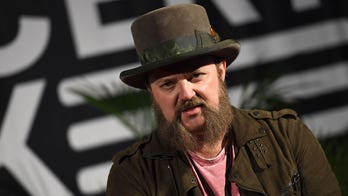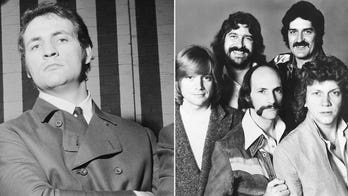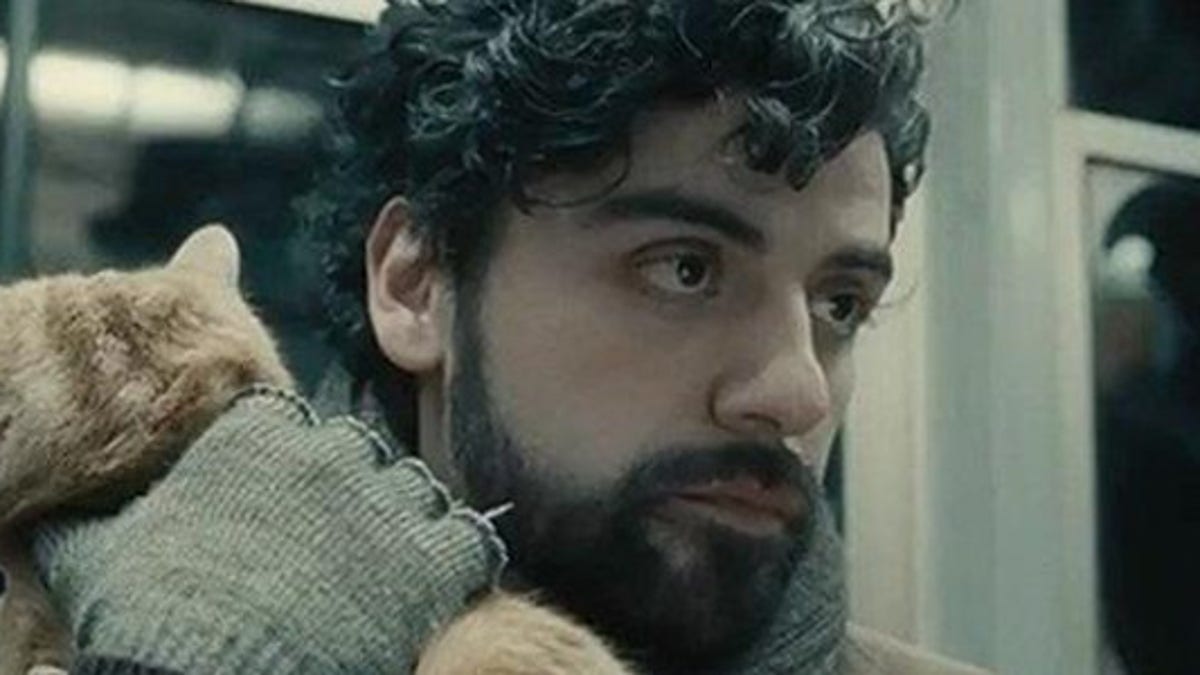
Since graduating from Juilliard in 2005, Guatamalan-born and Miami-bred Oscar Isaac has been on a steady rise. With noticeable roles in films such as Robin Hood, Drive and The Bourne Legacy, Isaac has been proving his worth as a film actor with something extra.
That “something extra” has been fully realized with his breakthrough role as the title character in Joel and Ethan Coen’s tale of a struggling folk singer in the early 1960s, Inside Llewyn Davis. Since winning the Grand Prize at Cannes in May, the film has been building a high profile this season and promises to put Isaac, who does all of his own singing, right in the heart of the race.
AwardsLine: Recount how you got this role, because the audition process was drawn out for the film. The Coen brothers thought the movie wouldn’t get made if they didn’t find the right actor.
Oscar Isaac: I heard about the audition process early on, and I was like, “I have got to get into this thing because I love the Coen brothers, I play music and I can sing.” I went in (to the audition) knowing that it was loosely based on (folk musician) Dave Van Ronk’s memoirs, and I knew he was this huge 6-foot-5, 200-pound Swede. I knew (I would be) a stretch, if they were trying to do a biopic. So I came in and I had a beard and I saw a photograph of this well-known musician—dark hair, dark beard. Suddenly, I calmed down and said, “So is this a reference shot? You guys are looking for people like that?” (Someone in casting) says, “Oh, no. He came in; he killed it.” It was like all the blood being drained out of my veins. They had been looking at a lot of really great musicians for the part because they wanted to have full songs performed live in the film, which is very unusual. I learned three songs and did the audition, and about a week later, they called me in to meet with the Coens. They’re the best to audition for. They are incredibly generous, and they’re quick to laugh, even just in conversation. So it was impossible to tell how it went because, apparently, they’re like that for everybody. A month went by, and I was just begging the universe to give me this one shot. Then I got a call (from) Joel. I remember him talking for a while before saying it, but then he finally said, “We’d love for you to do (the film), if you’d want to be a part of it.” I couldn’t believe it.
AwardsLine: What was the process like as they were directing you?
Isaac: Everybody has to get used to the fact that they’re not going to be overly complimentary about anything. Everyone needs to just assume that the nod and the shrug mean, “Good job.” So immediately, the vanity goes away. You’re no longer looking for approval; you’re just doing the work. That was actually quite liberating because you’re not looking for that (approval) anymore. They don’t go in for the big talks; they don’t over-intellectualize anything. It’s usually just small modulations in rhythm and movement. But in between takes, it’s through osmosis that you get their type of tone. I remember Joel said one time that he doesn’t direct so much as manage tone. Just hearing their philosophies on filmmaking and art, you’re living their vibe. It was very beatnik. They’re in tune with their own taste, and because of that, they’re very open to experimenting and trying things.
AwardsLine: You also mastered the guitar for this role.
Isaac: I’m not an accomplished musician by any stretch of the imagination, but I had some sh**ty punk bands in high school. I’ve always written and made music. I did not know how to play this style of music at all. I remember going to go see (executive music producer) T Bone (Burnett) for the first time. I was expecting he was going to show me videos and tell me I have to play like this and set up places for me to meet up with people who knew how to play like that. But I showed up, and it was much more Karate Kid. He would say, “Listen to this record,” and he would leave the room for an hour. (No one) told me how I was supposed to play, so I just naturally thought, “Oh, it’s based on Dave Van Ronk. I’m going to listen to his repertoire and watch how he plays.” I just totally obsessed on learning this style of playing and learning his songs and playing them like he played them. The acting challenge was to play (the music) in this character’s voice, but at the same time, it’s a movie about authenticity so I had to be authentic to how I was going to sing it. That was a crazy balance.
AwardsLine: You really inhabited this morose character. Are you a Method actor?
Isaac: In between takes, I’d be smiling from ear to ear, because I was so excited to be there. I mean, I try to stay in it, but I was too happy to be there. I couldn’t really keep it morose. That contradiction of the energy, the happiness of being there, but at the same time being completely invested in this despair, that was scary, too. You think, “Are people going to care about this dude?”
AwardsLine: You’ve just come out of the festival season—do you like this part of the process?
Isaac: Well, I like talking about the process. I never get tired of talking about this movie. I can be asked the same question about this movie and every time a new thought pops out. (I’m) still discovering it.

